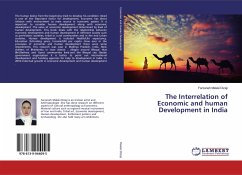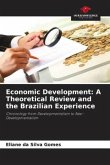Roots of Brazil's Relative Economic Backwardness explains Brazil's development level in light of modern theories regarding economic growth and international economics. It focuses on both the proximate and fundamental causes of Brazil's slow development, turning currently dominant hypotheses upside down.
To support its arguments, the book presents extensive statistical analysis of Brazilian long-term development, with some new series on per capita GDP, population ethnical composition, and human capital stock, among others. It is an important resource in the ongoing debate on the causes of Latin American underdeveloped economies.
To support its arguments, the book presents extensive statistical analysis of Brazilian long-term development, with some new series on per capita GDP, population ethnical composition, and human capital stock, among others. It is an important resource in the ongoing debate on the causes of Latin American underdeveloped economies.
"The poor performance of the Brazilian economy since the 1980s has been object of an ever long debate about its causes. This book provides important insights into this debate, bringing a provocative interpretation about the historical development of the Brazilian economy that explains the roots of its backwardness. Based on modern theories about economic growth, the author presents new statistical indicators that support his claims. This is a stimulating contribution to the academic research on the Brazilian economy." --Carmem Feijó, Fluminense Federal University







